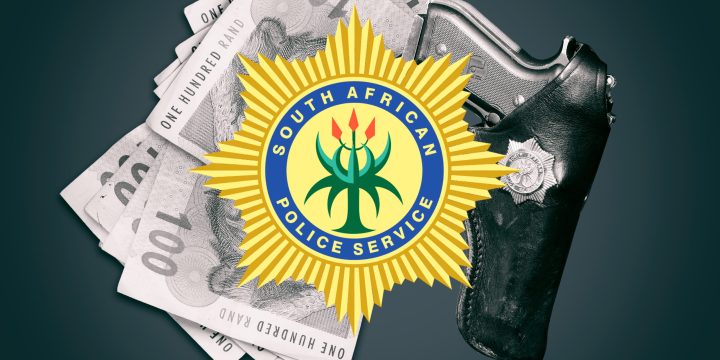PORTFOLIO COMMITTEE ON POLICE
Auditor-General finds SAPS ‘misstated’ R2.2bn in IT assets

Auditor-General also found that the SAPS had understated the number of ‘lost, stolen and illegal’ firearms, and that the number of identifiable stolen/lost SAPS firearms recovered had been ‘overstated’.
The South African Police Service (SAPS) misstated R2.2-billion in network assets in the previous financial year, the Auditor-General has found in a report tabled on 2 March to Parliament’s Portfolio Committee on Police.
The briefing to the audit committee revealed that the SAPS IT environment continued to be chaotic, that compliance with procurement and contract management within SAPS regarding Covid-19 personal protective equipment (PPE) is lax, and that errors in the registration of case dockets on the Crime Administration System (CAS) remained a problem.
The Auditor-General also found that the SAPS had understated the number of “lost, stolen and illegal” firearms and that the number of identifiable stolen/lost SAPS firearms recovered had been “overstated”. Contact crimes against SAPS members had also been understated.
“Management should implement processes and systems that would allow for the accurate recording of recovered firearms without serial numbers. A system or process should be implemented to track unidentified firearms similar to the processes followed to report unidentified vehicles,” noted the Auditor-General.
With regard to “consequence management”, the Auditor-General noted that the lack of implementation of internal controls led to “capturing errors on the CAS” resulting in firearms “not being detected by the commanders when reviewing case dockets and SAPS13 [surrender of weapons form] registers against the CAS system”.
The report revealed that it cost the State Information Technology Agency (Sita) about R30-million to appoint an asset management company to capture the SAPS’s network assets. Sita’s Technology Infrastructure Management: Internal audit, is responsible for oversight of the process.
The report noted a “misstatement” of R2.2-billion “due to the sufficient details not being on invoices and bill of materials”. Management adjustments to SAPS network assets were also not substantiated with sufficient information, noted the report.
This is not the first occasion that the committee has had to deal with the chaotic finances of the SAPS. In 2018 it noted “with huge concern and disappointment” that the SAPS had received a “second qualified audit opinion from the Auditor-General, two years in a row”.
These serial qualified audits point to habitual incompetence in management capability.
The Auditor-General’s report notes that a resubmission of the network register was made “where all assets followed a fair value approach. Misstatements identified led the team not to place reliance on the initial register.”
The adjustments on network assets by SAPS management which indicated credit of R1.77-billion and debit of R1.351-billion were also “not substantiated with sufficient information”.
In its recommendations, the Auditor-General stated: “There should be the required urgency by management in responding to our messages about addressing risks identified and improving internal controls.”
Management should also ensure “detailed review and monitoring processes are in place over the maintenance of the asset register”.
The Auditor-General added that management should implement “urgent steps to address the challenges relating to the availability of reliable source documents supporting the valuation of network assets”.
In terms of visible policing, the number of “lost, stolen and illegal” firearms had been understated “due to firearms not being circulated timeously” and the number of identifiable stolen or lost SAPS firearms recovered had been “overstated”.
It recommended that Community Service Centre (CSC) members and commanders be trained “on the accounting rules of various types of contact crimes and the completion of pocket books”.
With regard to procurement, the Auditor-General reported to the audit committee that some goods and services above R500,000 “were procured without having competitive bids and deviations were approved by the accounting officer despite it being practical to invite competitive bids, as required by Treasury regulations”.
“Effective and appropriate steps were not taken to prevent irregular expenditure,” said the Auditor-General, adding that in some instances “disciplinary steps were not taken against some of the officials who had incurred and permitted irregular expenditure” as per the Public Finance Management Act.
No investigations had been conducted or finalised by management in some of the cases, while some of these matters had been carried forward from previous years.
It noted that, “PPE was not always procured at the prices regarded by the National Treasury as realistic and market related during the Covid-19 pandemic. The department paid prices as high as 500% of the prescribed National Treasury prices.”
With regard to the SAPS’s progress in implementing remedies “up to January 2021”, the Auditor-General found that a letter with regard to the correct use of the Crime Administration System had been “circulated to all SAPS email users” and that action would be taken against CSC commanders responsible for incorrectly registering cases.
A note had been sent to all provinces with regard to the notification of lost, stolen or found firearms.
The Auditor-General noted that while there appeared to be “an improvement on the accuracy of charges recorded in the current reporting period” the accurate capturing of victim details related to crimes committed against women and children “remain a concern as no improvement has been noted in this regard”.
With regard to the “audit response action plan”, Sita had appointed an asset management company to physically verify “asset component and subcomponent valuation”.
This site inventory was to be maintained by Sita “since they are obliged to perform asset lifecycle management”.
“It is estimated that the financial implications of this project will be R30-million,” said the Auditor-General. DM



















Are there any agencies in this ANC government that do not boast corruption in their tender processes?